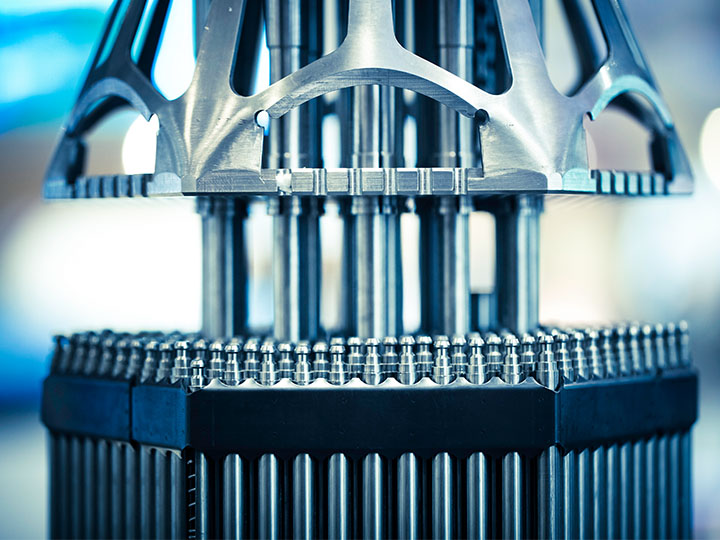Applications of AI/ML from Nuclear Data to Reactor Design

Machine learning techniques are revolutionizing nuclear data evaluation and reactor design. Vladimir Sobes, assistant professor in the Department of Nuclear Engineering at the University of Tennessee, Knoxville, has dedicated his career to exploring the application of modern artificial intelligence and machine learning algorithms to current problems in nuclear engineering.
In the realm of nuclear data evaluation, Sobes underscored the significance of ML algorithms in automating tasks such as hyper-parameter tuning and learning complex functions, particularly in the realm of uncertainty quantification. Sobes illustrated the structured nature of nuclear data, stressing the importance of automated feature identification—a task traditionally performed manually by experts. ML/AI, he argued, offers the promise of enhancing efficiency, reproducibility, and uncertainty quantification in nuclear data evaluation, thereby enabling experts to devote their time to more critical tasks.
Transitioning to the topic of reactor design, AI has the potential surpass human capabilities in autonomous optimization, although Sobes cautioned against the indiscriminate use of surrogate models.
Sobes demonstrated the effectiveness of the Gaussian Process Learning Algorithm for design optimization using a scenario related to the development of a spacecraft antenna. NASA engineers asked an AI algorithm to imagine an antenna. Despite an initial skepticism of its unintuitive design, rigorous testing demonstrated superior performance compared to human-designed alternatives. In 2006, the NASA ST5 spacecraft antenna, the same model proposed by an evolutionary computer design, was sent to space.
AI/ML technologies are reshaping the landscape of nuclear engineering, from streamlining nuclear data evaluation processes to pushing the boundaries of reactor design beyond what was previously thought possible. Sobes' insights highlighted the symbiotic relationship between human expertise and AI, emphasizing the potential for collaboration to drive innovation in nuclear science.
The presentation concluded with a quote by Arthur C. Clarke, adapted to signify the transformative potential of advanced optimization methodologies: "Any sufficiently advanced optimization methodology is going to be indistinguishable from intelligence."
Sobes envisions a future where AI supplements human expertise, enabling breakthroughs in nuclear science and technology.